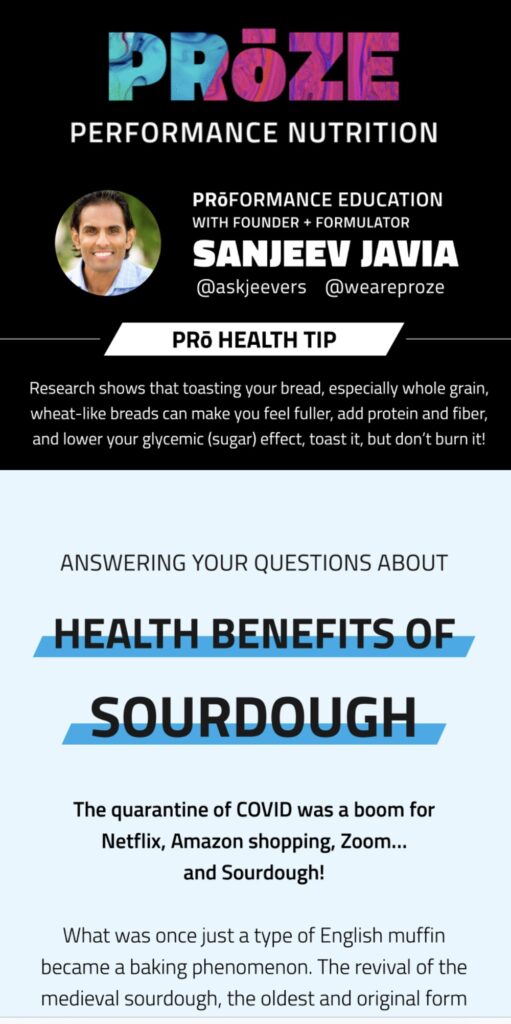Seems like if there is one truth in all nutritional science and mothers-around-the-world advice, it’s; eat your fruits and vegetables. However, some people hear, “you can choose, fruits and vegetables are the same”…ahh, they are not. Fruits have a LOT more sugar than veggies. And we all know that too much sugar is bad for our health, upping our chances of weight gain, diabetes, heart disease, cancer, and a whole host of other health issues. But is the sugar in a apple the same as in a Snickers? Would mother nature create something dangerous, yet so tasty, sweet, and delicious?
Q: What type(s) of sugar is in fruit?
A: Fruit contains three types of sugar, free form (by itself) Fructose and Glucose, and then a combination of these two bound together which is called Sucrose. Sucrose is an equal amount 50/50 of both of these sugar molecules. Sucrose is also called table sugar.
Q: Don’t they add fructose to foods, is it the same?
A: Yes, fructose is fructose. Whether these individual sugars come from natural sources or added to products (e.g. added sugars), it’s all the same. Added fructose is no different than the fructose that is found in fruits. However, high fructose corn syrup (HFCS) is not just fructose, HFCS is a combination of fructose and glucose (like Sucrose), but it has high amounts of fructose compared to glucose. What makes HFCS worse than sucrose, even though it has the same type of sugars is the disproportionately amount of fructose.
Q: Is the sugar in fruit broken down differently?
A: No. Fructose is metabolized by the liver and the glucose is broken down in the stomach. Fructose advantage is that it doesn’t raise blood glucose or insulin levels, which contributes to a variety of disease. But the problem is, too much fructose causes the liver to make fats. The glucose does raise insulin levels but it’s also used as storage to keep your energy stable all day and feed your brain.
Q: So what makes the sugar in fruit healthier than the sugar added to foods?
A: As far as the actual sugar, nothing. The sugars are the same. Fructose is fructose, glucose is glucose, sucrose is sucrose. But…how the sugar is found is completely different. In fruits, not only is the sugar amount less than in most foods, but the fruit contains a variety of other healthy nutrients from fiber, to vitamins/minerals, to antioxidants, to phyto(plant) nutrients – that are not found in certain foods. Take a Snickers, you’ll consume the same sucrose as what’s found in fruit, but you’ll eat 10x more with no other nutritional value.
Q: Any other benefit fruit has?
A: Yes, the fiber. The fiber is key in fruits. Fiber helps to slow down the breakdown of all sugars in fruit. Slowing down the pace allows the sugars to work with the body’s need of sugar so that you can minimal storing, you use the sugars consumed for energy. Without the fiber, like in a Snickers bar, you get a full rush of sugar that takes you on high, crashes you, but worst, causes you to store…creating inflammation and FAT!
Q: So how can fruit make you fat?
A: Well, you can eat a lot of it and take away the fiber. The amount of sugar you eat and the pace in which you consume it, is the issue. It’s not easy to eat 5 oranges in 5 minutes. But you could drink the juice of 5 oranges in that time. This overloads the breakdown, metabolizing, and utilizing (for energy) mechanisms the body has for sugars. It promotes not only storing, but taxes the liver, pancreas, and hormonal systems. Juicing or eating dried fruits are things I regulate, I think both are good, but in moderation. But eating whole fruits, the fruits themselves are self-regulators, so I don’t worry much about that.
Q: Are some fruits better than others?
A: All fruits are great and healthy. The social media “truths” that bananas have too much sugar, watermelons are high on the glycemic index, or citrus creates cavities, are all ridiculous. Once you dig into all this, you’ll realize it’s just wrong. However, fruits that contain more peel to pulp ratio, such as berries and other smaller fruits or those that you eat the whole skin – plum, peaches, etc..add more fiber, which is always the best. They also concentrate a lot of their nutrients and the very deep, dark, colorful ones have certain phytonutrients that make them incredibly beneficial.
Q: When is the best time to eat fruit?
A: Anytime. There are so many myths out there. Eat by themselves, not at night, on an empty stomach, etc.. and there is no science to any of these claims. What I do believe is that the more fiber and protein you can pair with fruit, the better. I eat fruit with nuts. I mix fruit in my smoothie. I’ll add some fruit to granola. The key is, when I blend fruit (e.g. smoothie or juice), I am careful of how much, it’s only as much I would eat in one sitting.




